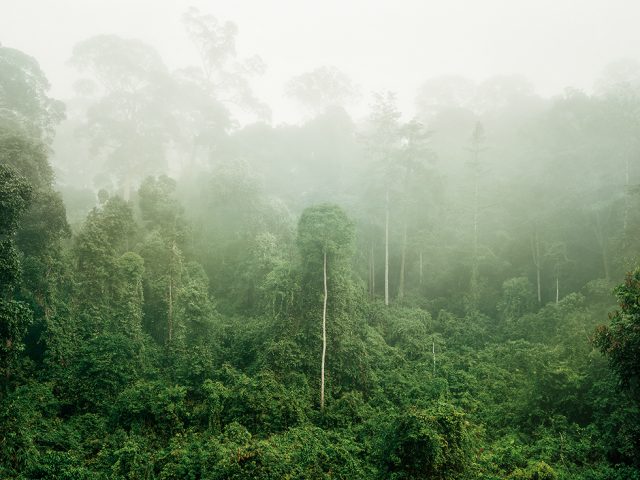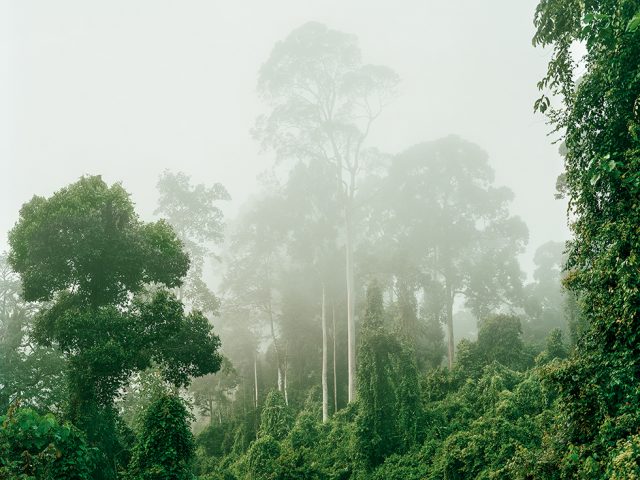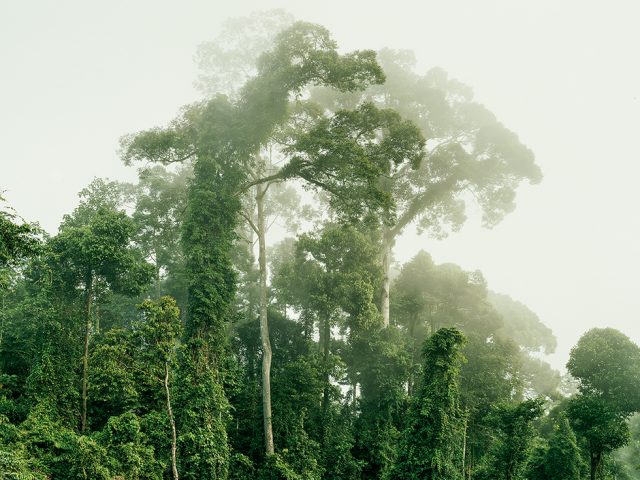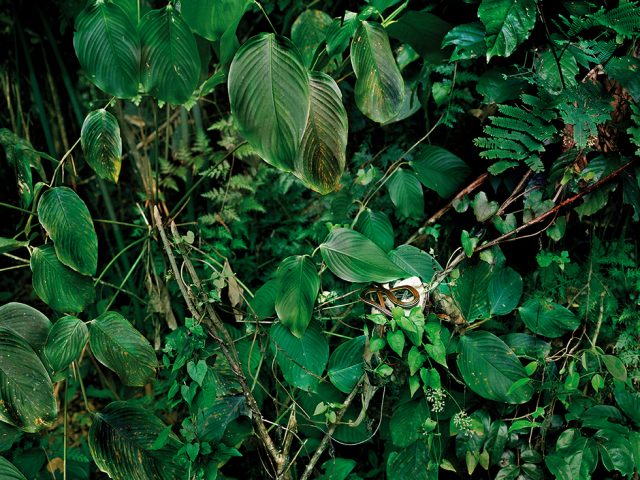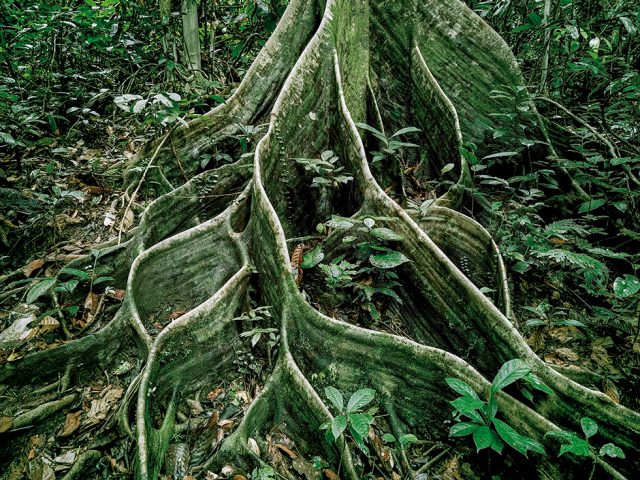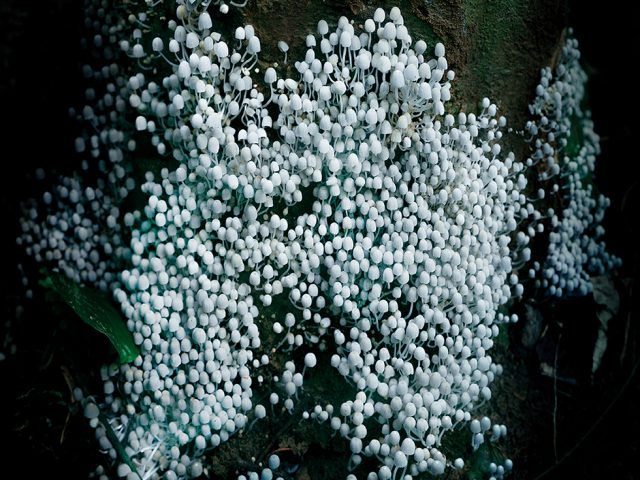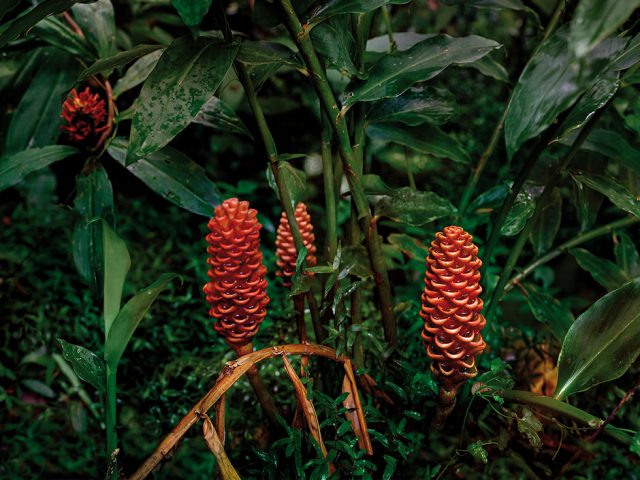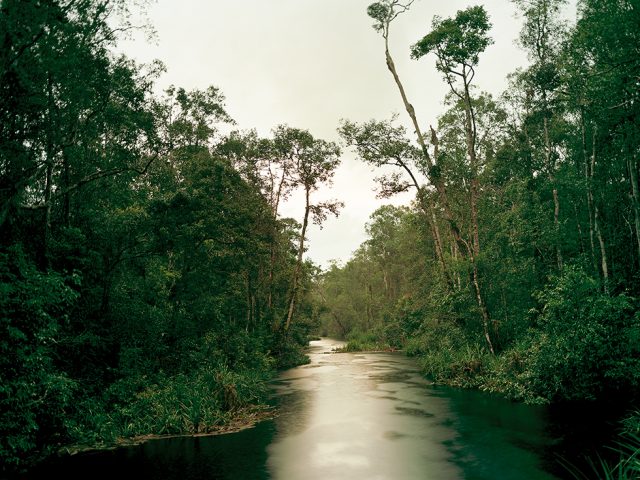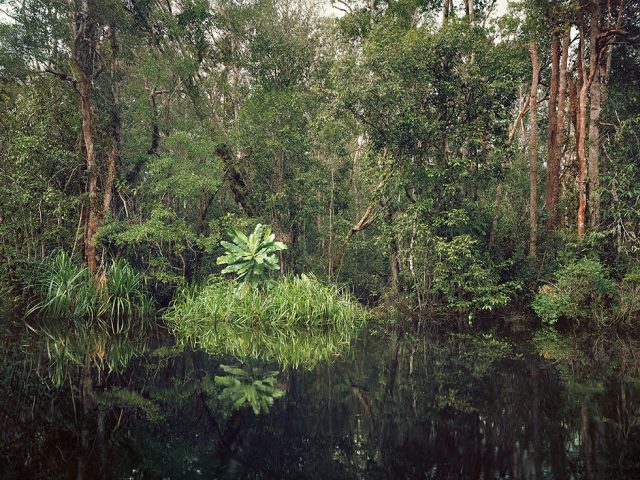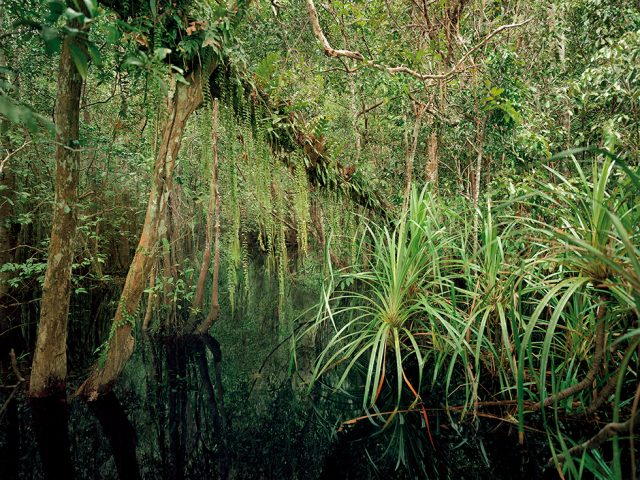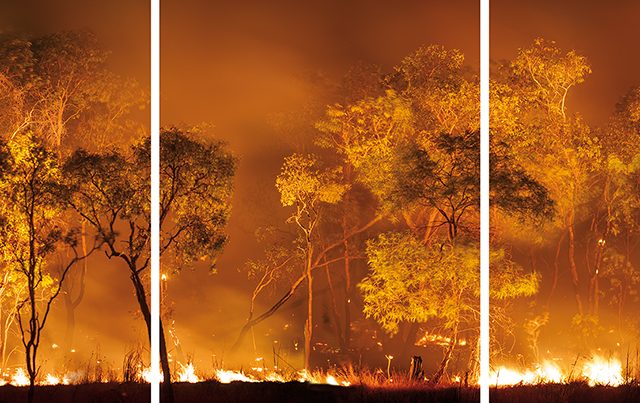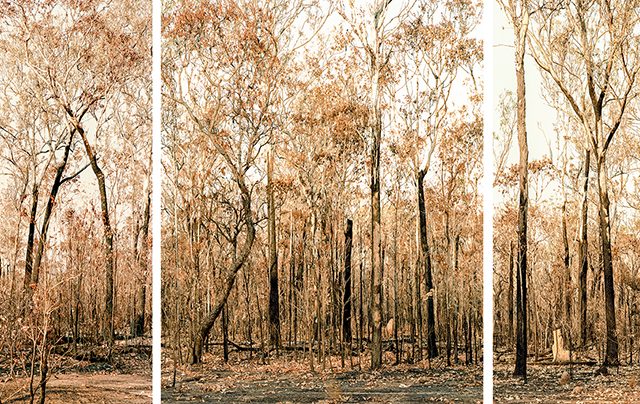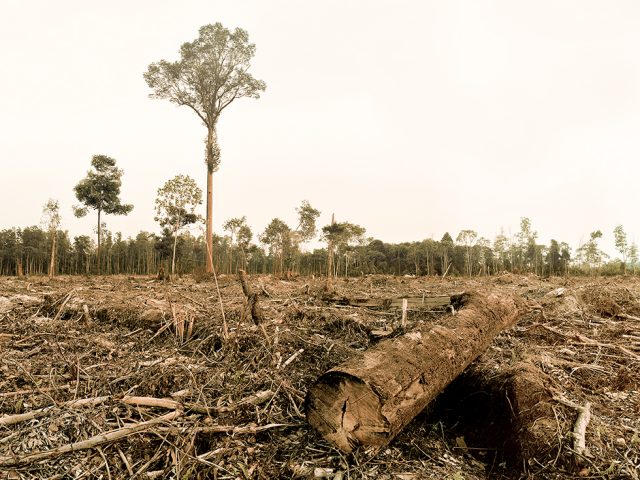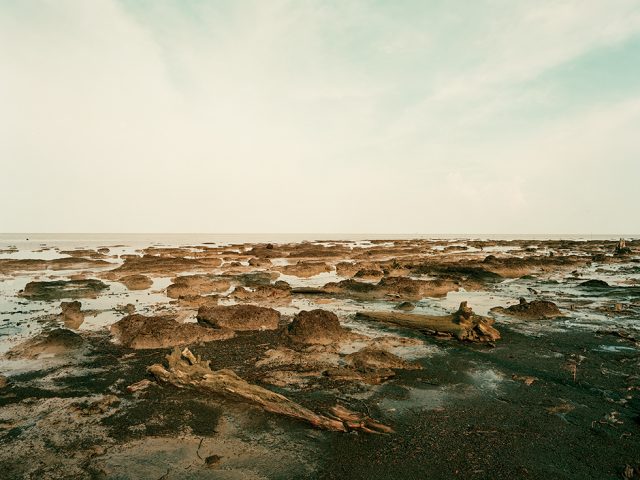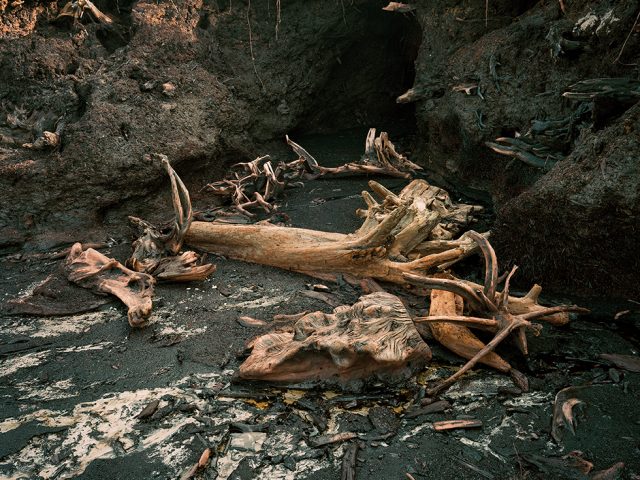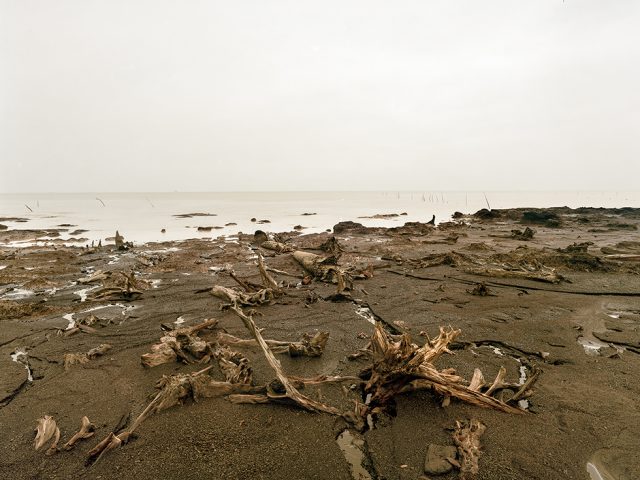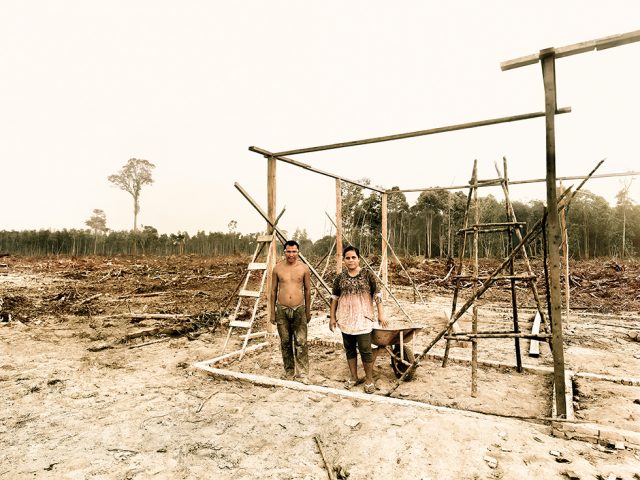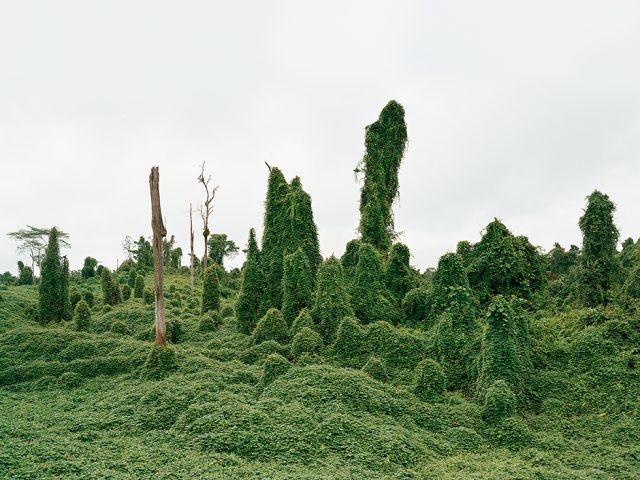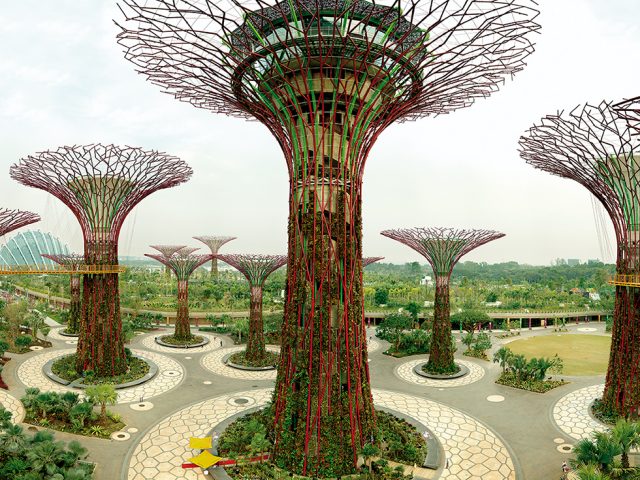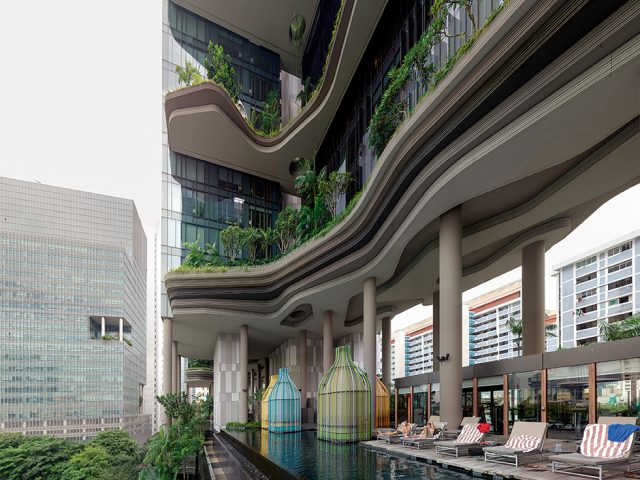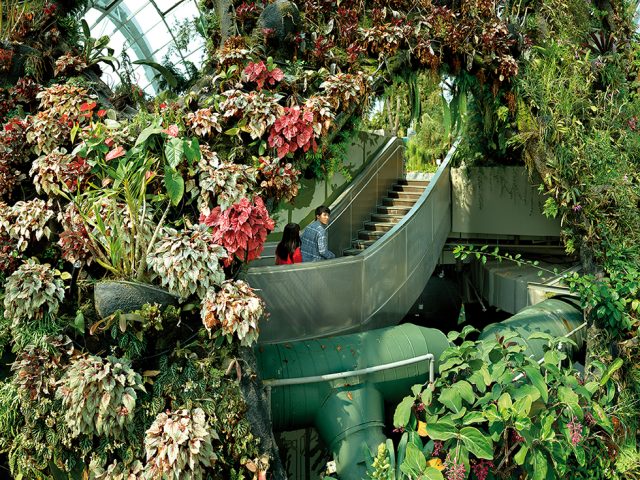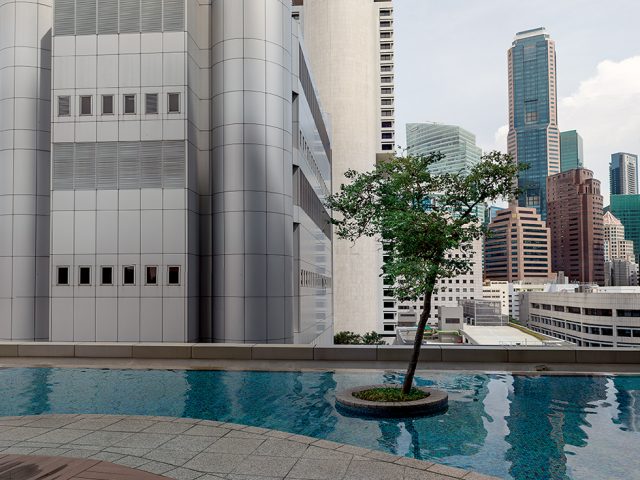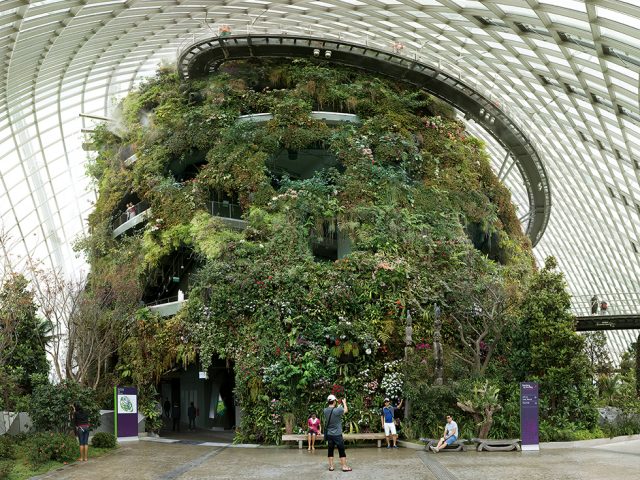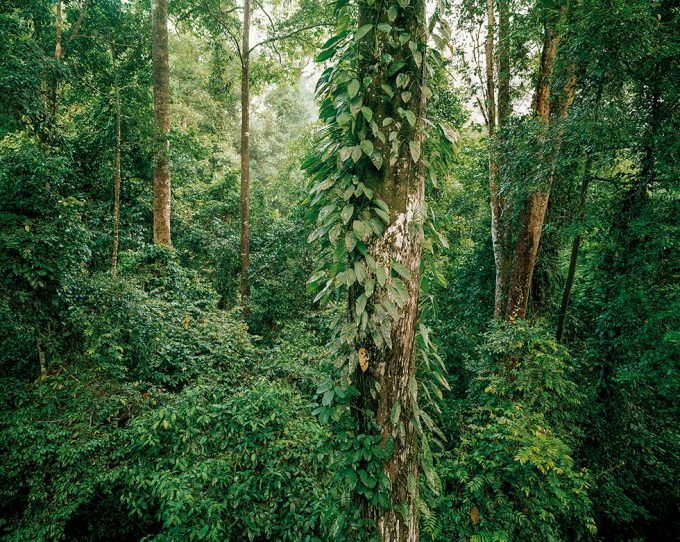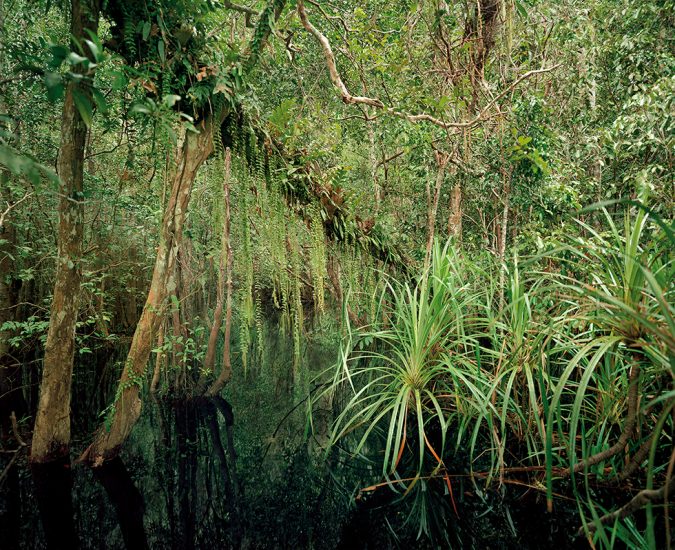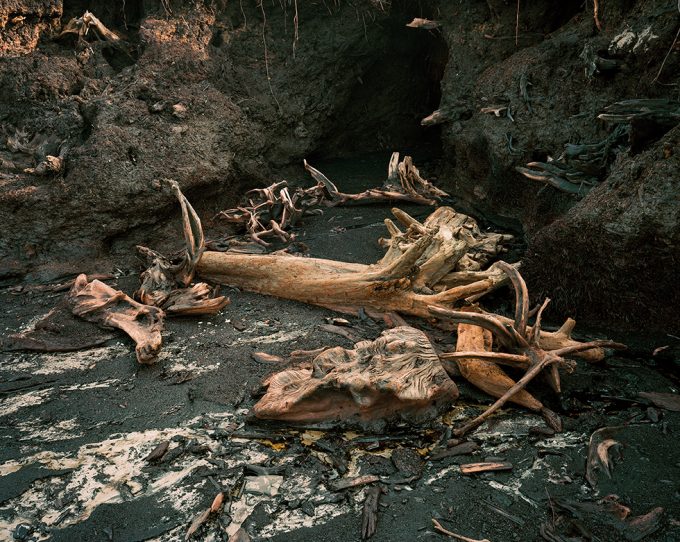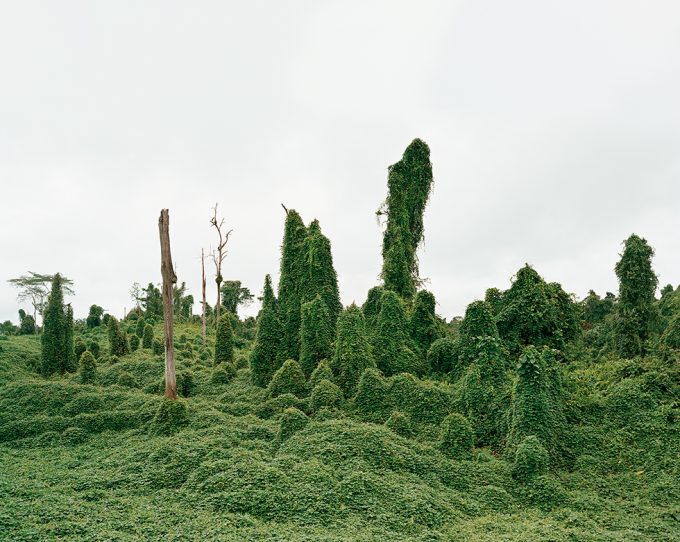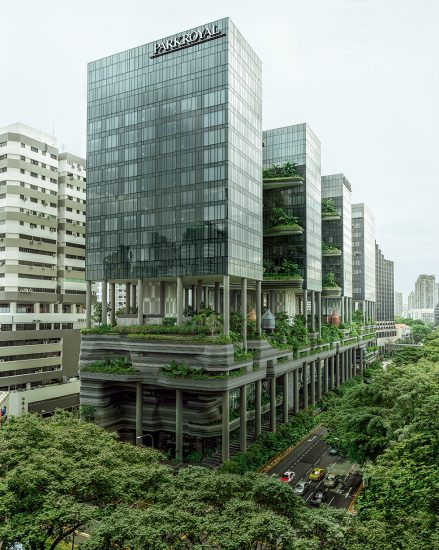The artist writes:
“While I write these notes to my pictures, my chair and feet are resting on parquet flooring made of merbau, a tropical hardwood that was felled in Indonesia and found its way to Germany by rather circuitous means. My landlord had the parquet flooring laid down long before I moved into this office because it is unusually beautiful and hard-wearing. Like almost all tropical woods, merbau is obtainable only through the destruction of primeval forests, and is readily available in Germany. All of us in the west have heard a great deal about the destruction of the primeval forests, and yet we all remain complicit in it, either directly or indirectly.
“My gaze wanders from my computer screen to the lush, green garden outside my window. It is early July. Warm rain is pouring down. As I watch the blue-green raindrops falling, I am transported back to one of Indonesia’s tropical rainstorms. I see myself seated on my camera bag and huddled beneath a ground sheet, somewhere on an island off Sumatra.
“Often caught in a shower while out photographing, I’ve enjoyed many an afternoon sitting beneath my sheet, listening to the rain loudly pattering down and looking at the warm, humid primeval forest—just sitting there and marveling at this lush, green, living richness. However, the place my memory takes me back to is now no longer forest. Instead, it is a wasteland of black and carbonized earth, strewn with the shells of crabs, lobsters, insects, and snails. The ground beneath the dead animals’ empty husks is burned to a depth of several meters. There’ve been countless times when I’ve waded up to my stomach into the fire-hollowed peat, looking for an image that can capture something of my shock at what I’ve found. My pictures and videos are an attempt to report on what I’ve experienced, on what I’ve seen with my own eyes and what has, for that reason, deeply moved me. For many years I’ve been visiting places where human beings have encountered pristine nature, either directly or indirectly, and I’ve watched as these places have shrunk at an alarming rate. While researching the subject, it first seemed to me almost paradoxical that the so-called western world was behind both the destruction of the primary habitats and the attempts to protect them. I saw how both sides in the conflict were using impoverished and poorly-educated local populations for their own interests. For the most part, local people can only powerlessly watch as these dramatic changes take place.
“Power often belongs to others. In the majority of places, large corporations already probably wield more influence than the entire elected representatives of people across the world ever had. The power of this economic system has now become so extensive and so complexly amorphous that it is very difficult to grasp. Corporations tend to react to legislation and other attempts to control their actions simply by strategically shifting their position, almost always acting to their own advantage and in a manner that will protect their profits. At the end of the day, moderate and sustainable behavior is just not a profitable approach for them. Corporate ethics are applied only where they are useful—and then only as a cosmetic exercise, a pretence that can be dropped at any time, whose sole function is to promote the production and marketing of products.
“There is now good reason to believe that this planet is being changed ever more quickly and uncontrollably by human overpopulation, high material expectations, new technological developments, and general opportunism—and that it is a change to the detriment of all life on earth. Only a rapid countermovement could still avert the destructive consequences of this way of behaving. If that doesn’t happen, we will probably gamble away any remaining chances for future generations.
“My photographs from the project, ‘Reading the Landscape,’ document the changes to landscape caused by overpopulation and the uncontrolled usage of Earth’s resources. Humans destroy primary forests, which have been growing for millions of years, within decades. Within the last thirty years almost ninety percent of the forests in Indonesia have been destroyed and replaced by monoculture. At the same time, humans create a version of nature according to their own imaginations in the megacities of the world, turning nature into a product.
“‘Reading the Landscape’ shows three states of nature in the primary forests of Indonesia and Malaysia: intact nature, ravaged nature, and artificial nature. Altogether, the project documents a fatal ecological and economic process that has progressed beyond the point of reversibility.”



